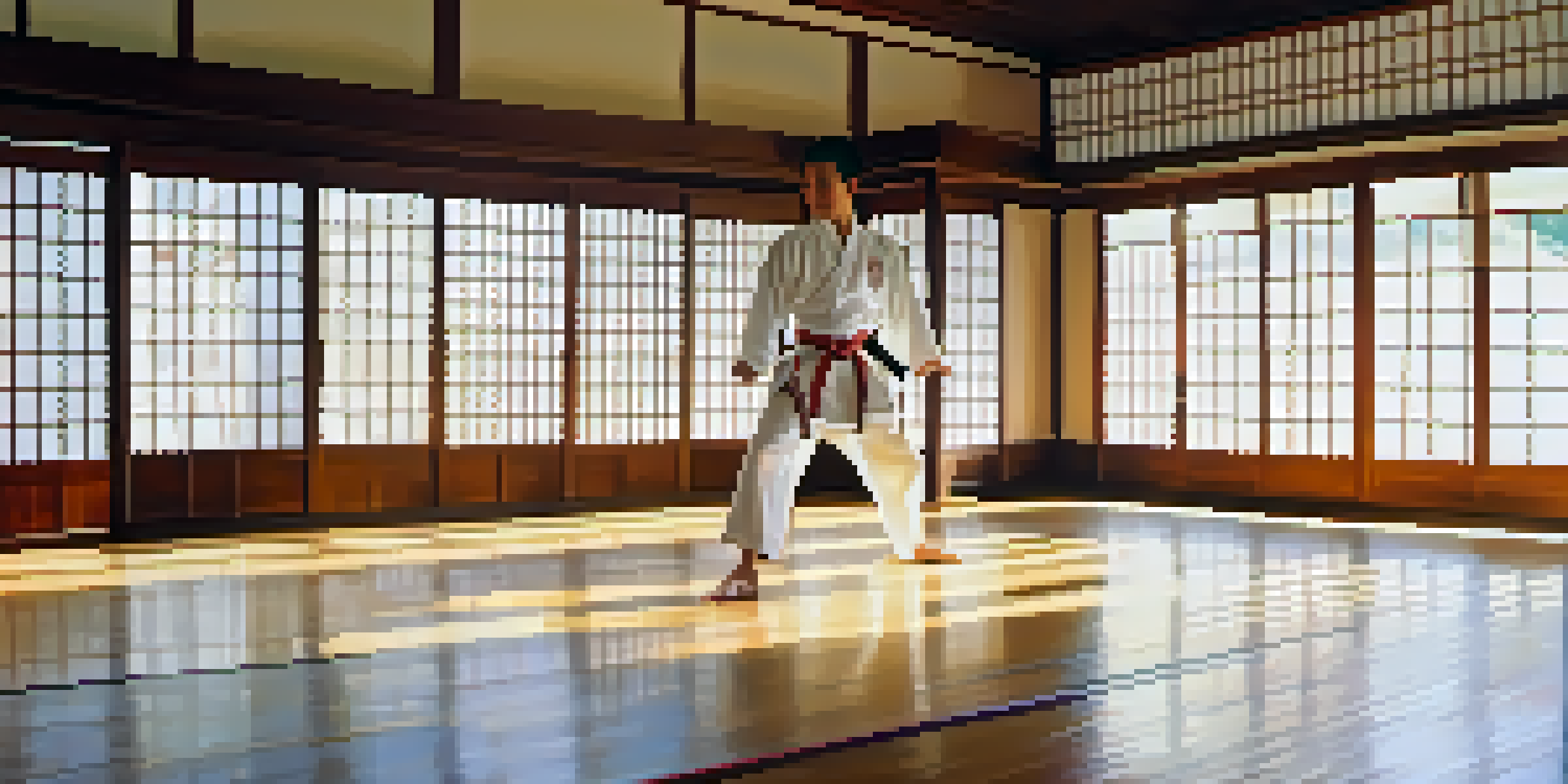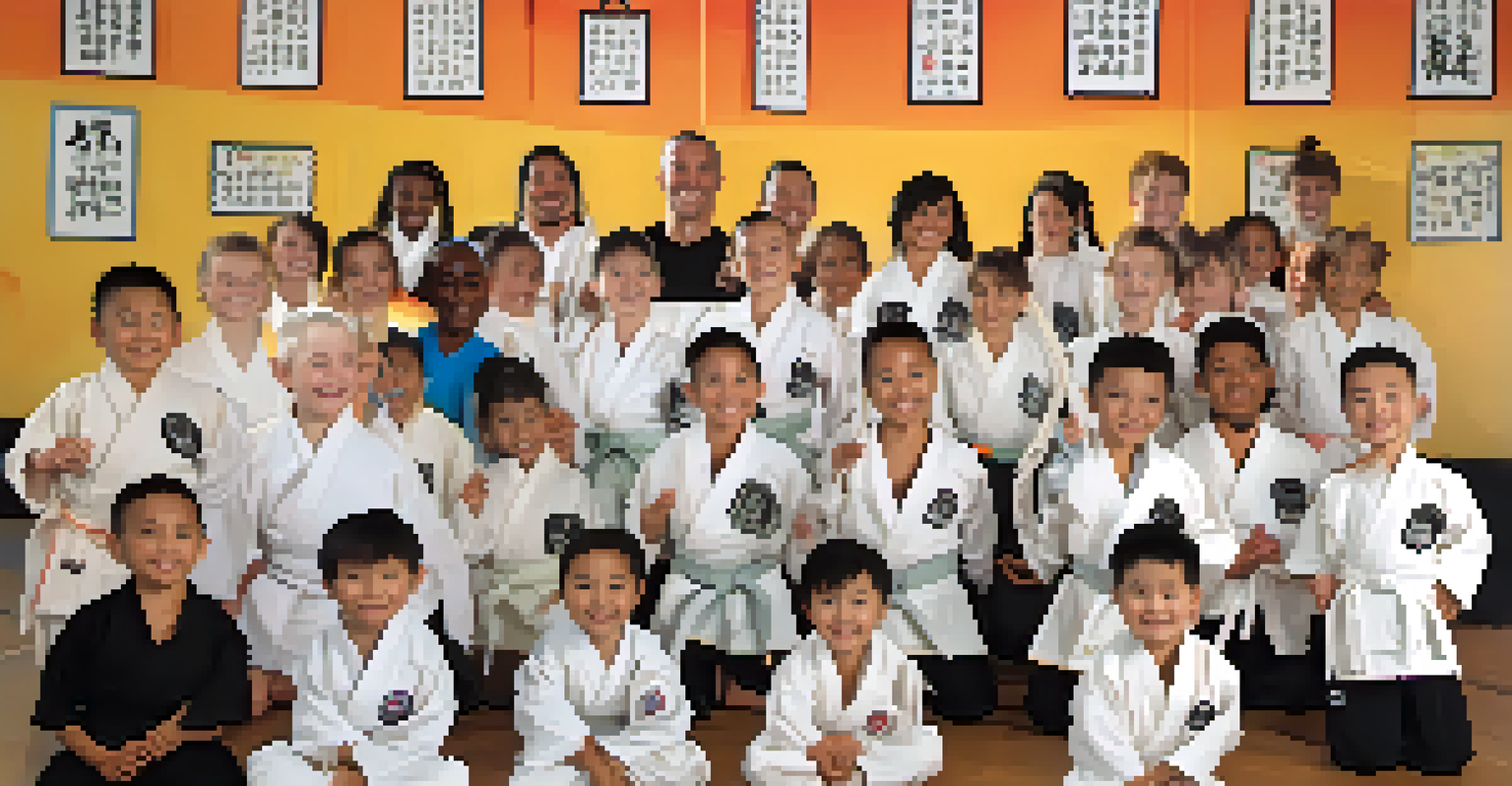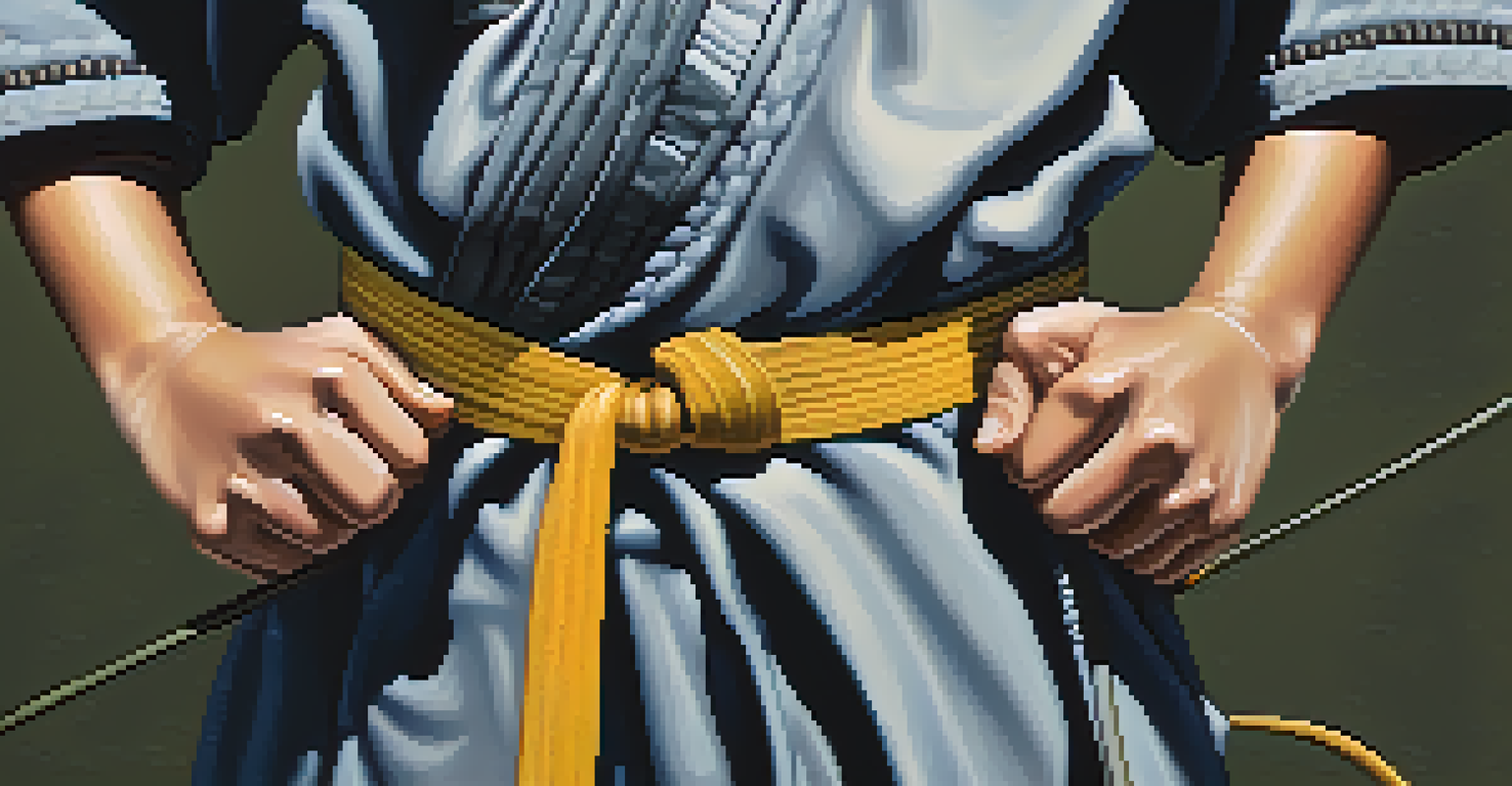Boosting Self-Esteem Through Martial Arts for Mental Health

Understanding Self-Esteem and Its Importance
Self-esteem is essentially how we perceive our own worth. It's a crucial aspect of our mental health, influencing our thoughts, emotions, and behaviors. When our self-esteem is high, we feel confident and capable, but when it's low, it can lead to feelings of inadequacy and anxiety.
Self-esteem is not a luxury; it is a necessity for a healthy and fulfilling life.
Building self-esteem is a journey that requires self-reflection and effort. It's not just about feeling good on the outside; it’s about developing a positive internal dialogue. Engaging in activities that promote personal growth is one effective way to boost self-esteem.
Martial arts provide a unique opportunity to enhance self-esteem. They teach discipline, resilience, and self-control, all of which contribute to a more confident self-image.
How Martial Arts Promote Confidence
Martial arts training often involves setting and achieving personal goals, which can significantly enhance confidence. Each new skill learned or belt earned represents a milestone in personal development. This process fosters a sense of accomplishment, reinforcing the belief in one's abilities.

Moreover, martial arts encourage participants to step out of their comfort zones. Facing challenges head-on, whether it's sparring with a partner or mastering a difficult move, helps build resilience. This resilience translates into greater confidence both inside and outside the dojo.
Self-Esteem Shapes Our Lives
Self-esteem affects our mental health, influencing how we think, feel, and behave in various aspects of life.
Additionally, the supportive community found in martial arts classes creates a safe space for individuals to grow. Encouragement from instructors and peers can help bolster self-esteem, making practitioners feel valued and accepted.
The Role of Physical Fitness in Self-Esteem
Physical fitness plays a significant role in boosting self-esteem. Engaging in martial arts not only improves physical skills but also enhances overall fitness levels. As participants become stronger and more agile, they often feel better about their bodies, which boosts self-confidence.
The greatest weapon against stress is our ability to choose one thought over another.
Exercise releases endorphins, commonly known as 'feel-good' hormones. This natural high can help combat feelings of depression and anxiety, promoting a more positive outlook on life. When individuals feel good physically, it often translates to improved mental health.
Martial arts provide a full-body workout that helps practitioners feel empowered and self-sufficient. The sense of strength and agility gained through training can help individuals develop a more positive self-image.
Mindfulness and Focus in Martial Arts
Martial arts also emphasize mindfulness, which can be transformative for mental health. By focusing on the present moment during training, practitioners learn to quiet their minds and reduce stress. This practice of mindfulness can lead to enhanced emotional regulation and a more stable self-esteem.
The concentration required in martial arts helps individuals develop a greater sense of control over their thoughts and actions. This skill is invaluable, particularly for those struggling with anxiety or self-doubt. Being able to focus can empower individuals to tackle challenges both in and out of the dojo.
Martial Arts Build Confidence
Engaging in martial arts fosters resilience and accomplishment, significantly boosting participants’ self-confidence.
Moreover, the mental discipline learned through martial arts can improve resilience. Practitioners learn to stay calm under pressure, a skill that can enhance their confidence in daily life.
Building Community and Support
One of the most significant benefits of martial arts is the sense of community it fosters. Training with others creates bonds that can lead to lasting friendships, which are essential for emotional support. This support network can help individuals feel less isolated in their struggles with self-esteem.
In martial arts classes, practitioners often encourage one another, celebrating victories no matter how small. This collective spirit reinforces a positive environment where everyone feels valued. Such camaraderie can be crucial for individuals looking to build their self-worth.
Being part of a community also provides accountability. When individuals train together, they inspire each other to push their limits, which can lead to personal growth and an increase in self-esteem.
Setting Goals for Personal Growth
Martial arts inherently encourage goal-setting, which is vital for building self-esteem. Whether it’s earning a new belt or mastering a difficult technique, setting and achieving goals provides a clear path toward personal growth. This structured environment helps practitioners recognize their progress.
Setting realistic and attainable goals allows individuals to experience success regularly. Each accomplishment, no matter how minor, reinforces a positive self-image and encourages further progress. This cycle of achievement is key to building lasting self-esteem.
Community Support Enhances Growth
The supportive community in martial arts classes creates an environment where individuals feel valued and encouraged to grow.
Additionally, the process of setting goals teaches valuable life skills, such as patience and perseverance. Learning to navigate challenges in martial arts translates to resilience in everyday life, ultimately boosting self-esteem.
The Importance of Self-Defense Skills
Learning self-defense is another significant benefit of martial arts training. Knowing how to protect oneself can dramatically increase feelings of safety and security, which contributes to overall self-esteem. This empowerment can be particularly beneficial for those who have experienced trauma or insecurity.
Beyond physical self-defense, martial arts also teach mental strategies for handling conflict. Practitioners learn to approach situations with confidence and assertiveness, which can enhance their self-worth. Feeling capable in challenging situations fosters a strong sense of self.

Ultimately, the skills gained through martial arts training provide individuals with tools to navigate the world confidently. This newfound confidence can spill over into all areas of life, further reinforcing positive self-esteem.